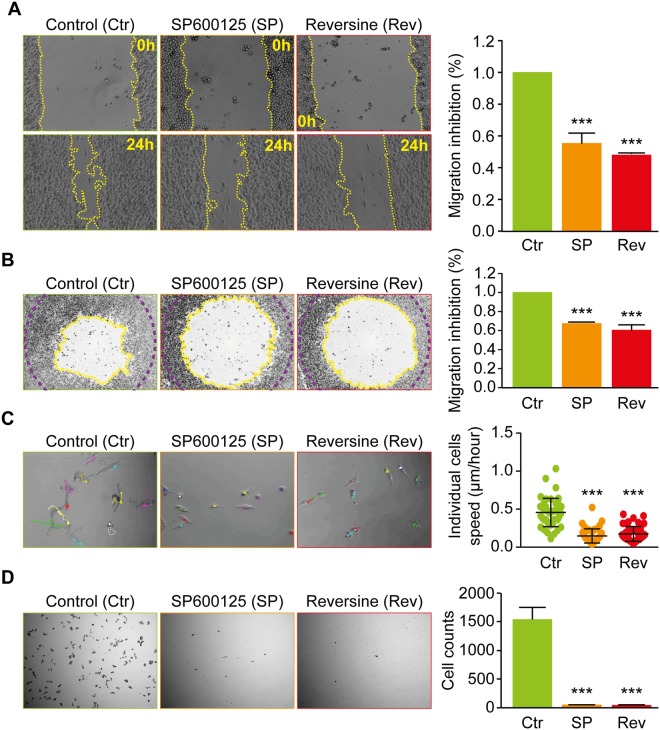Figure 1.
Reversine and SP600125 inhibit human colon carcinoma RKO cells migration. (A) Wound-Healing assay. The human colon carcinoma RKO cell lines were plated in a 6-well plate and kept to monolayer confluence and then a wound-healing assay was performed. Representative photomicrographs are shown. The yellow broken lines delimit the cell-free area. Quantitative data of anti-migration % comparatively to control are presented in the right of the panel. (B) Two-dimensional migration assay using the Oris™ cell assay. Cells were allowed to migrate for 24 h after the removal of cell seeding stoppers and treatment, fixed and stained with phalloidin and DAPI to evaluate their motile potential. Representative photomicrographs are shown. The yellow broken lines delimit the cell-free area after 24 h of migration while the purple broken lines delimit the cell-free area at time 0 h. Quantitative data are presented in the right of the panel. (C) Individual cell tracking assay. Cells were grown in non-confluent conditions and imaged for 24 hours, using time-lapse microscopy, to evaluate respective migration potential of individual cells. Representative photomicrographs are shown with the trajectories reconstituted using Image J software of some cells with or without treatment. Quantitative data of cells speed are presented in the right of the panel. (D) Boyden chamber assay. Cells were collected, washed and suspended in free serum medium. Cells were then added to the upper compartments of the Boyden chamber in the presence or absence of Reversine or SP600125. Representative photomicrographs of cells that had migrated 24 h later to the lower side of the filter are shown. Quantitative data are presented in the right of the panel. Data are reported in SEM; n = 3. ***(p < 0.001) indicates significant difference from the absence of Reversine or SP600125 treatment (ANOVA).

